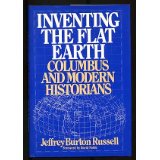What about original sin? Let’s plunge into the Deeper Waters and find out.
In this chapter, Baker looks at the topic of Original Sin. Well, we’ll see how much he stays on topic. He starts it off with talking about what the sin of Adam and Eve was. His reply? Seeking knowledge.
Well, no.
For one thing, this tree was in the center of the garden, which would make it the most important tree of all. The term good and evil is not meant as knowledge, but more as a merism in Hebrew thought. It meant that they wanted wisdom on their own terms, not on the terms of God. They wanted to be in charge. They wanted to rule the garden on their own.
Seeking knowledge was not the problem. It was how they were seeking it.
He also says he spent years following God’s plan for his life and found it to be a myth. Once again, I have to say I get tired of so many of my fellow evangelicals talking about God’s plan for your life. If God has a personalized individual plan for your life, let me assure you you have already ruined it, as have I. No. I can tell you the real plan God has for your life. It’s easy. His plan is to conform you to the likeness of Christ if you are willing.
Now all historians gather around and prepare for a laugh:
Throughout history, medical science, astronomy, philosophy, sexuality and even art, have all been adversely affected by Christian thinking.
Preacher, Ex; Baker, Barnaby. Obsessed with Blood (The Crazy Things Christians Believe Book 1) (p. 66). Kindle Edition.
I always refer atheists on this to go to Tim O’Neill and his History for Atheists series. There is so much misinformation in these simple sentences that I can only recommend the great myths series. There is a constant problem ex-Christians have that they go from blindly believing what they believed before to blindly believing whatever else is said on the other side. He can also check out Dominion by Tom Holland.
Contrary to what modern Christians are led to believe, the Bible really does describe the earth as being flat with the sun and moon revolving around it. For centuries, this is a belief the church upheld so vehemently they actually killed blasphemers who thought otherwise. Strangely it is not something they cling to quite so vehemently anymore. The Bible’s support of slavery, which will be discussed in different book; is also a teaching they distance themselves from.
Preacher, Ex; Baker, Barnaby. Obsessed with Blood (The Crazy Things Christians Believe Book 1) (pp. 66-67). Kindle Edition.
The first myth on O’Neill’s page is the flat Earth myth. We will deal with slavery in the other book if it is read, but I can say based on Tom Holland that the reason he opposes slavery is because he has absorbed background Christianity. There is nothing on the basis of atheism that can lead to the idea that slavery is inherently wrong. (I would actually argue that anything is evil or good for that matter.) Naturally, Baker has no citations for any of these claims about Christian history.
Giordano Bruno was burned at the stake in 1590 for going against Bible theology and correctly declared that the earth rotates around the sun – heliocentrism. Galileo also defended heliocentrism and the belief the earth was not as described in the Bible. The Church responded by threatening Galileo with torture and confining him to house arrest until he died.
Preacher, Ex; Baker, Barnaby. Obsessed with Blood (The Crazy Things Christians Believe Book 1) (pp. 67-68). Kindle Edition.
No citations again. No. Bruno was not burned to the stake for heliocentrism but for various heresies and for all the idea of Bruno being a scientist, his scientific works are never cited. One can only wonder why…..
The Galileo affair is not an open and shut case. The church really had no problem with Galileo believing in heliocentrism as long as he treated it as a theory. It didn’t help that he wrote a dialogue depicting the pope as a simpleton. Also, the evidence for his claim was good, but it wasn’t sufficient yet. Again, O’Neill has several articles on Galileo if Baker wanted to peruse them, but I suspect he won’t, despite his claims that he loves seeking knowledge.
Without a doubt, science and culture have all been suppressed due to the ridiculous belief that the Bible is more than just a collection of ancient stories, but the actual inspired word of God.[xxxii]
Preacher, Ex; Baker, Barnaby. Obsessed with Blood (The Crazy Things Christians Believe Book 1) (p. 70). Kindle Edition.
Oh look! He has a citation! What great source did he cite?
None. He just referred to 2 Tim. 3:16 on the belief in Scripture being the inspired word of God.
I am not surprised.
We will continue next time.
In Christ,
Nick Peters
(And I affirm the virgin birth)



